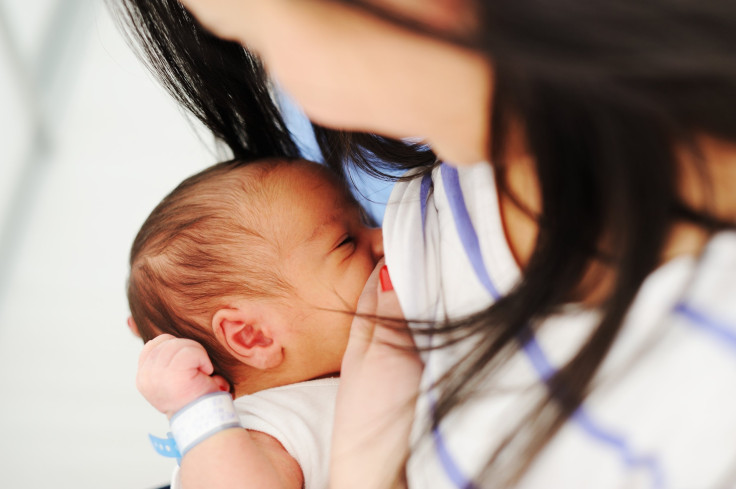Britain Pays Mothers To Breastfeed Their Babies, Hoping To Encourage Practice

With the hopes of encouraging a “stigmatized” practice in a pilot study, the U.K. government, along with Sheffield University, will offer financial incentives for mothers to breastfeed their infants. Mothers in two locations – Derbyshire, which is in central England, as well as South Yorkshire, will receive $200 shopping vouchers if they breast-feed for six weeks. They will go on to receive $320 if they manage to breastfeed for six months.
“The U.K. has one of the worst breastfeeding rates in the world,” Clare Relton of Sheffield University told France 24. Relton believes breastfeeding improves the child’s health: “Babies who are breastfed have fewer health problems such as upset tummies and chest infections, and are less likely to develop diabetes and obesity when they are older.”
The two areas of England were chosen due to their low breastfeeding rates – one in four mothers breastfeeds their child, according to the BBC, compared to the national average of 55 percent. These areas are also known to be low-income, where breastfeeding is stigmatized. “A woman from a young, white low-income area will often tell you it is embarrassing to breastfeed in public or even in her own home,” Mary Renfrew, professor of mother and infant health at Dundee University, who is advising the project, told the Guardian. “Women have even told us it is immoral because breasts have been very sexualized.”
The Centers for Disease Control and Prevention (CDC) states on its website that most health professionals agree that human milk “provides the most complete form of nutrition for infants, including premature and sick newborns,” and that “breastfeeding is ideal for infants.” It lists only a few exceptions to that rule, such as when an infant is diagnosed with galactosemia, a rare genetic disorder, or if the mother is infected with HIV, tuberculosis, is using an illicit drug or is undergoing chemotherapy or other radiation therapies. The World Health Organization also recommends that babies be breastfed until they are 6 months old.
However, Janet Fyle, policy advisor to the Royal College of Midwives, told France 24 that there is a deeper cultural belief among some mothers that financial incentives won’t change. “In many areas, including those in this study, there are generations of women who may not have seen anyone breastfeeding their baby, meaning it is not the cultural norm in many communities,” she said. Some mothers choose not to breastfeed because they are worried whether their baby is latching on properly or if they are producing enough milk, and often turn to infant formula to make things easier, to avoid the stigma associated with breastfeeding in public, and to return to work more quickly.
Breastfeeding is an issue in other countries such as China, where government officials have tightened rules on infant formula companies and cited the health risks associated with such products.



























